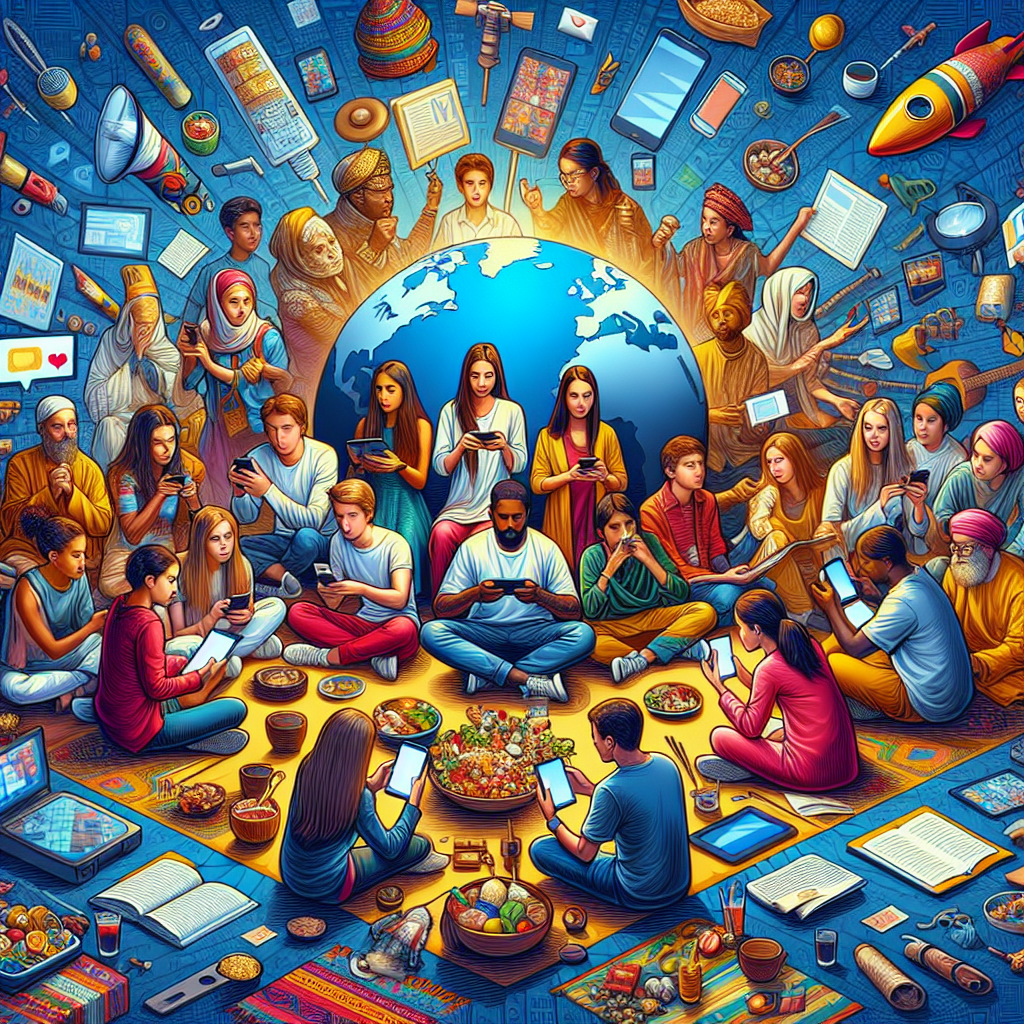Navigating Cultural Identity: Globalization's Impact on Youth
- lugarawayouth Foundation
- Aug 20, 2024
- 3 min read
In today's interconnected world, the concept of cultural identity is constantly evolving, particularly among the youth. Globalization has significantly influenced how young people perceive their own cultures and how they interact with those from diverse backgrounds. The rapid spread of global media and the advent of technology have played pivotal roles in shaping the cultural landscape for the younger generation. Let's explore how these factors impact cultural identity and foster cross-cultural understanding among the youth.
The Influence of Global Media on Youth Perceptions
Global media, with its reach spanning across borders and cultures, has become a powerful force in shaping the perceptions of young individuals. From international films and music to social media influencers, the exposure to diverse cultural expressions has broadened the horizons of today's youth. It has enabled them to appreciate different traditions, languages, and lifestyles, breaking down stereotypes and fostering a sense of global citizenship.
Through movies, TV shows, and online platforms, young people are not only entertained but also educated about the richness of world cultures. They learn to empathize with characters from different backgrounds, which, in turn, promotes tolerance and acceptance. The ability to see the world through multiple lenses enhances their cultural competence and encourages them to embrace diversity as a source of strength rather than division.
The Role of Technology in Connecting Youth Across Borders
Technology acts as a bridge that transcends geographical boundaries, enabling young individuals to connect with their peers worldwide. Social media platforms, messaging apps, and online gaming have revolutionized how youth communicate and collaborate with others from diverse cultural backgrounds. Virtual spaces provide opportunities for cross-cultural dialogue, exchange of ideas, and forging meaningful relationships beyond borders.
Through digital platforms, young people engage in cultural exchange by sharing their own customs, beliefs, and experiences with a global audience. They participate in virtual cultural events, language exchange programs, and collaborative projects that celebrate diversity and promote mutual understanding. Technology not only connects youth across continents but also empowers them to act as cultural ambassadors in a borderless world.
Personal Stories of Cultural Exchange and Adaptation
Sarah , a teenager from the United States, recounts her experience of participating in a virtual exchange program with students from Japan. Through video calls and online discussions, she learned about traditional Japanese festivals, cuisine, and values. Despite the language barrier, Sarah found common ground with her peers through shared interests in music and fashion. This cultural exchange not only broadened her worldview but also deepened her appreciation for cultural differences.
On the other side of the world, Takumi from Japan shares his story of befriending a peer from Brazil through an online gaming community. Despite their initial language challenges, Takumi and his Brazilian friend bonded over their passion for gaming and gradually learned to communicate effectively through a mix of languages and emojis. This virtual friendship transcended cultural differences and taught Takumi the value of open-mindedness and empathy.
Nurturing a Global Mindset
As we navigate the complexities of cultural identity in a globalized world, it is crucial to nurture a global mindset among the youth. By promoting intercultural experiences, encouraging cross-border friendships, and embracing diversity, young individuals can develop a sense of belonging to a broader human community. Through the fusion of traditional values and modern influences, the youth can create a unique cultural identity that celebrates both their roots and their global connections.
In conclusion, globalization's impact on youth cultural identity is a dynamic process that requires active engagement, open-mindedness, and cross-cultural dialogue. By leveraging the power of global media, technology, and personal stories of cultural exchange, young individuals can navigate their identities in a rapidly changing world. Embracing diversity, fostering empathy, and celebrating cultural differences are key to shaping a future generation that thrives in a multicultural society.
Let's continue the conversation on cultural identity and globalization – one story, one connection at a time!







